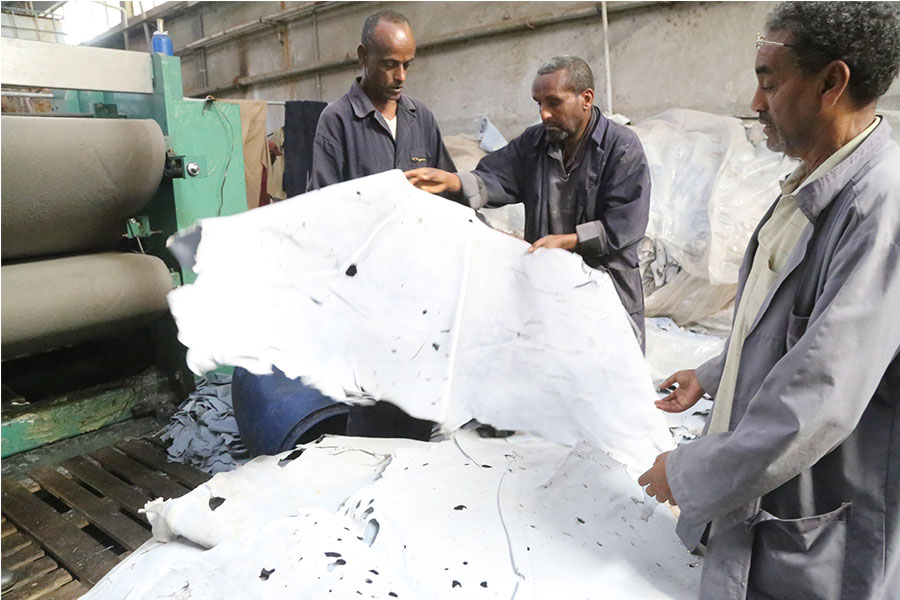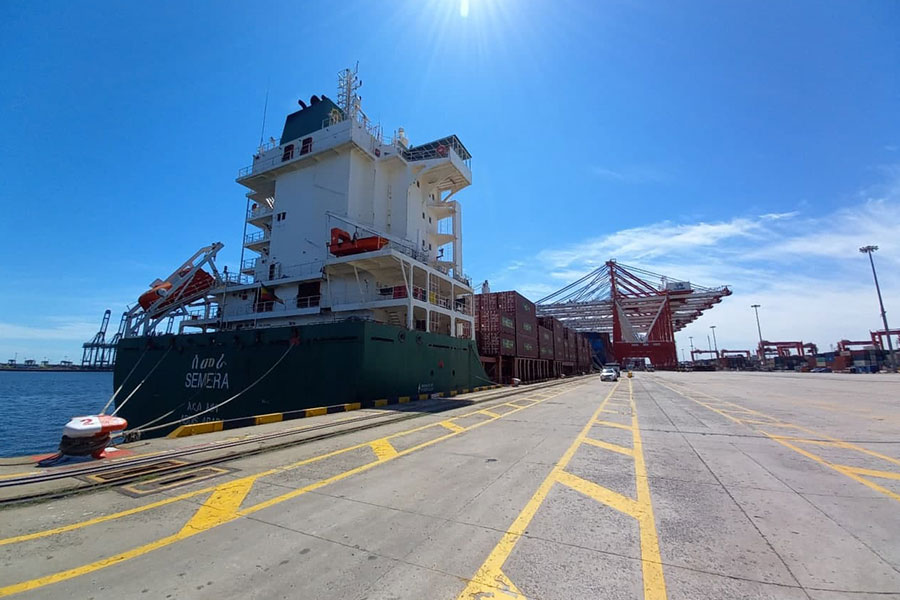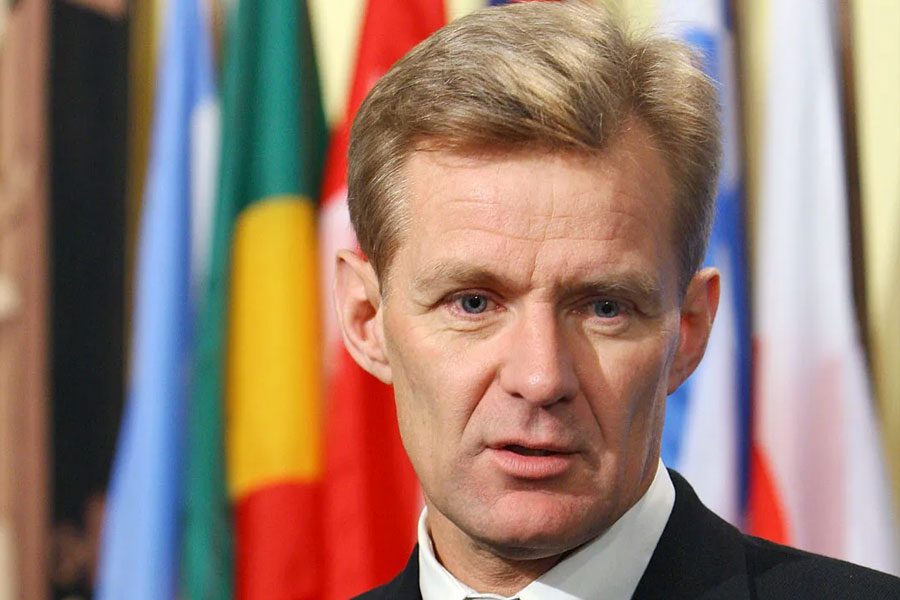
Agenda | Sep 28,2024
A storm is brewing in the steel industry, threatening the existence of domestic manufacturing and challenging the country’s industrial ambitions. At the centre of this storm are allegations of rampant contraband, unchecked duty-free imports, and the authorities seemingly oblivious to the plight of domestic producers. This complex scenario unfolds against a backdrop of economic upheaval and a growing demand for construction materials, painting a picture of an industry at a crossroads.
The Ethiopian Basic Metals & Engineering Industries Association, representing 76 members, has sounded the alarm.
Solomon Mulgeta, the general manager, forcefully warned of a looming collapse shortly.
“We’ve three months before collapse,” he said.
The evidence of this impending crisis is already visible. In the past year alone, 28 manufacturers of galvanised sheets have shuttered, and 15 producers of reinforcement bars are teetering on the brink of failure. Industry operators blame a deluge of steel from Turkiye flooding the market, undercutting local prices.
The industry’s performance in the recent fiscal year tells a tale of underachievement. Against a target of 343,105tn, only 52pc was realised, with goods worth 4.85 billion Br produced. This shortfall revealed the industry’s crisis, from large stockpiles to policy gaps. Notably, the automotive sector, closely linked to the steel industry, faces similar challenges, including a lack of transparency in government auctions and a preference for imports over local materials.
Exports, too, have been lacklustre. Ethiopia earned 30 million dollars from exporting metals, electric, and electronic products last year, falling short of its potential.
For people familiar with the industry, this crisis is not just about numbers; it is a story of investment, ambition, and potentials derailed. Having invested hundreds of millions of Br, steel producers find themselves outmatched by a market skewed in favour of imports. A recent import of 300,000tn of steel products by a single buyer was a move that has sent ripples through the industry. The price disparity was stark. Imported steel, exempt from Value Added Tax (VAT), was sold for up to 90 Br a kilogram in the construction input market, 30 Br lower than domestic manufacturers could offer.
"A domestic supply shock is abound," Solomon warned.
These differences are not a matter of economics but a reflection of a broader issue of policy and regulation—or the lack thereof, say industry leaders.
The Association has formed a sub-committee comprising managers of four companies, including industry leaders like Adama Steel Plc, to conduct an in-depth survey to combat the deluge. Yet, this initiative seems like a small step against a tidal wave of challenges due to the government’s role or its absence.
Wondifraw Belete, a member of the Association, blamed the government for ignoring the plight of steel producers. This accusation gains weight when considering importers’ alleged misuse of duty-free privileges in large-scale projects such as hotels and housing.
“Something has to be done before we disappear,” Wondifraw told Fortune.
The Ethiopian Customs Commission (ECC) finds itself at the centre of this blame whirlpool. Its Deputy Commissioner, Muluwork Derese, pointed her figures at the lack of clear definitions and specifications for raw materials in steel production. She recalled an incident a few weeks ago where steel as large as six meters was declared as input for industry. This ambiguity has opened a Pandora’s box of monitoring challenges, allowing the import of large steel materials under the guise of industry inputs, she conceded.
“The Ministry of Industry should have addressed this,” said the Deputy Commissioner, "not us."
Ministries have been drawn into the fray, after the disgruntled manufacturers addressed their plights to the ministries of Finance, Revenues, Mines, Trade and Industry a few weeks ago, urging policy intervention to aid their cause.
Last week’s meeting at the Nexus Hotel, near the Gerji Mebrat Hail area, brought on board manufacturers and officials from the ministries of Revenues and Mines.
The response from Eyob Bekele, head of mining development at the Ministry of Mines, was one of surprise and concern, revealing a disconnect between the industry’s reality and the authorities’ awareness.
“If this is happening, it’s a crisis,” Eyob said.
While expressing shock at the situation, officials of the Ministry of Mines urged that a solution may be in the offing. Prioritisation in foreign currency allocation and shifting towards local substitution of imported inputs are being considered.
“They won’t be importing billets for long,” Eyob told Fortune.
Yet, for people familiar with the industry, these measures might be too little, too late. The state of the industry is dire. Domestic manufacturers, capable of producing up to 10 million tonnes annually, operate at a fraction of their capacity.
Getnet Endazenew, marketing manager at Steely RMI Plc, expressed severe disappointment at the Ministry of Mines for failing to address the industry’s problems over the past few years.
“You haven’t been paying attention while we were left stranded,” he said at the meeting, pointing to several issues.
Companies struggle with foreign currency shortages, skyrocketing prices for raw materials like scrap metal, and a lack of inputs.
These have pushed companies like Sentinel Steel Plc to the brink, struggling to pay wages to their workforce. Its story is symbolic of the industry’s woes. Despite a capacity of 120,000tn, the company’s sales have seen a decline for three consecutive years despite production flattening out at 20pc, a clear sign of the distress rippling through the industry.
Demssie Shibru, director of Sentinel, attributed the company’s struggles in paying wages for its 1,000 workers to the poor performance of the construction industry, compounded by a grey market of contraband and duty-free steel.
“It has gotten tough to compete,” he said.
He blamed the cash flow shortage for buying scrap metal from local markets as prices tripled to 76 Br a kilo, and general input shortages brought his company down to its knees.
“We’re hanging by a thread,” he told Fortune, noting that problems would persist until action is taken against the rising influx of ‘unaccounted for steel’.
Customs officials recognise the impact of contraband trade on the market and expressed a willingness to collaborate with the industry to address these issues.
Mule Abdisa, the head secretariat of the Commission, concurred that rising contraband imports presented the most significant burden to the steel industry.
“It requires serious effort to deal with the problem,” he said.
It has yet to translate into practical action, experts urged.
Voices such as those of Abebe Dinku (Prof.), a veteran civil engineer, provide a broader perspective. He was dumbfounded at how loads of several meters of metal rods were imported into the country without getting noticed by customs officials.
“It’s a blind eye with a political motive,” he told Fortune. “Control mechanisms need to be in place.”
The high price of steel in the local market, driven by input shortages, has inadvertently made imports more appealing, mainly as urban expansion drives demand for construction materials. Abebe, while not opposing the import of duty-free steel per se, advocates for a more balanced approach that considers the growth of domestic industries.
From an academic standpoint, the situation is equally complex.
Experts like Abiy Alene, a mechanical engineer, noted high production costs, frequent power outages, and technological underdevelopment as critical factors hindering local manufacturers.
“Abundant and cheap labour is the only thing helping them survive,” he said.
His call for long-term public investment and a political commitment to developing the industry strikes at the heart of the problem.
PUBLISHED ON
Nov 11,2023 [ VOL
24 , NO
1228]

Agenda | Sep 28,2024

Radar | Apr 25,2020

Commentaries | Mar 04,2023

Radar | May 27,2023

Agenda | Jan 26,2019

Viewpoints | Dec 09,2023

Agenda | Oct 23,2021

Commentaries | Nov 19,2022

My Opinion | Dec 23,2023

Verbatim | Jun 17,2023

Dec 22 , 2024 . By TIZITA SHEWAFERAW
Charged with transforming colossal state-owned enterprises into modern and competitiv...

Aug 18 , 2024 . By AKSAH ITALO
Although predictable Yonas Zerihun's job in the ride-hailing service is not immune to...

Jul 28 , 2024 . By TIZITA SHEWAFERAW
Unhabitual, perhaps too many, Samuel Gebreyohannes, 38, used to occasionally enjoy a couple of beers at breakfast. However, he recently swit...

Jul 13 , 2024 . By AKSAH ITALO
Investors who rely on tractors, trucks, and field vehicles for commuting, transporting commodities, and f...

Oct 25 , 2025
The regulatory machinery is on overdrive. In only two years, no fewer than 35 new pro...

Oct 18 , 2025
The political establishment, notably the ruling party and its top brass, has become p...

Oct 11 , 2025
Ladislas Farago, a roving Associated Press (AP) correspondent, arrived in Ethiopia in...

Oct 4 , 2025
Eyob Tekalegn (PhD) had been in the Governor's chair for only weeks when, on Septembe...